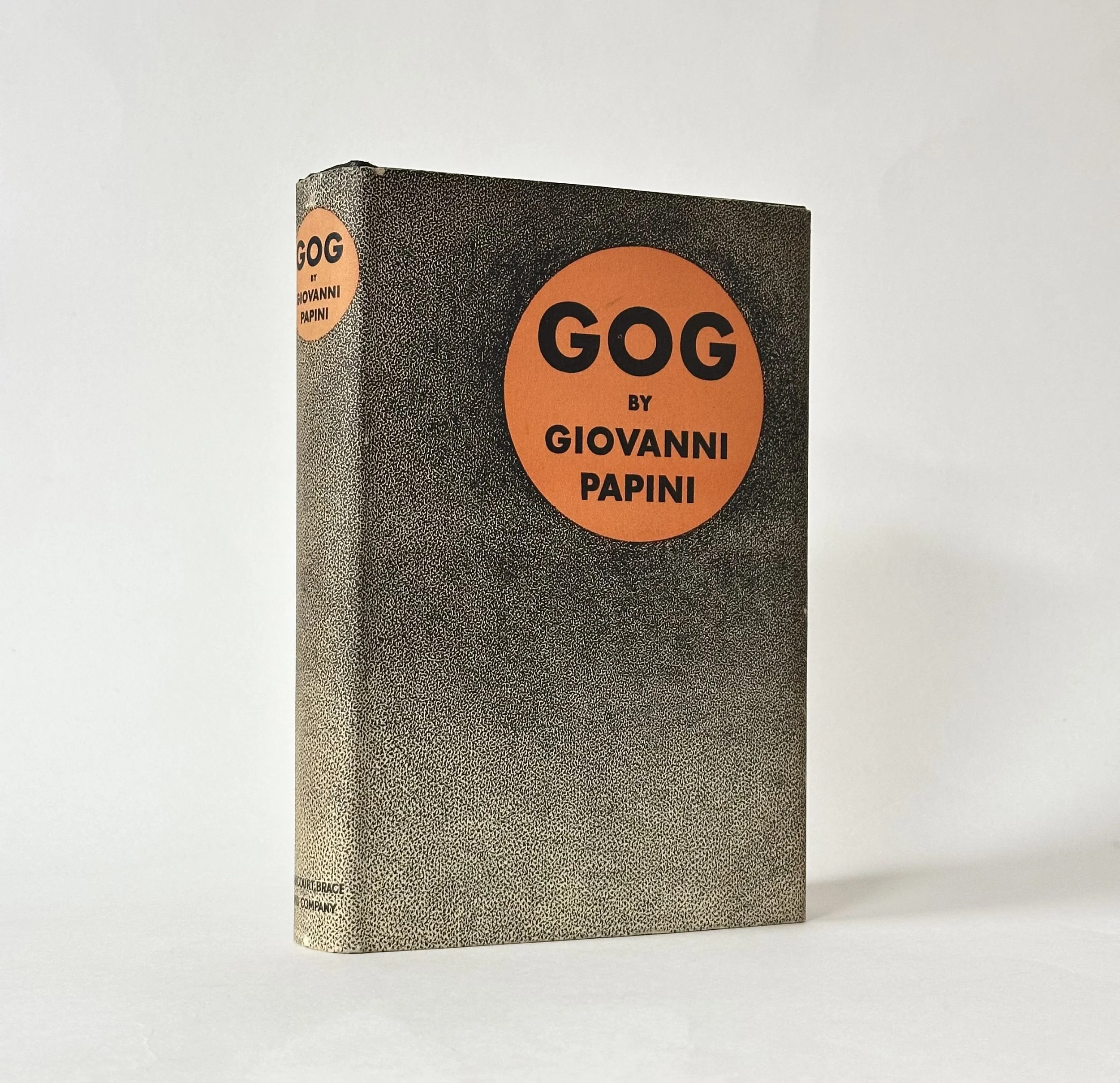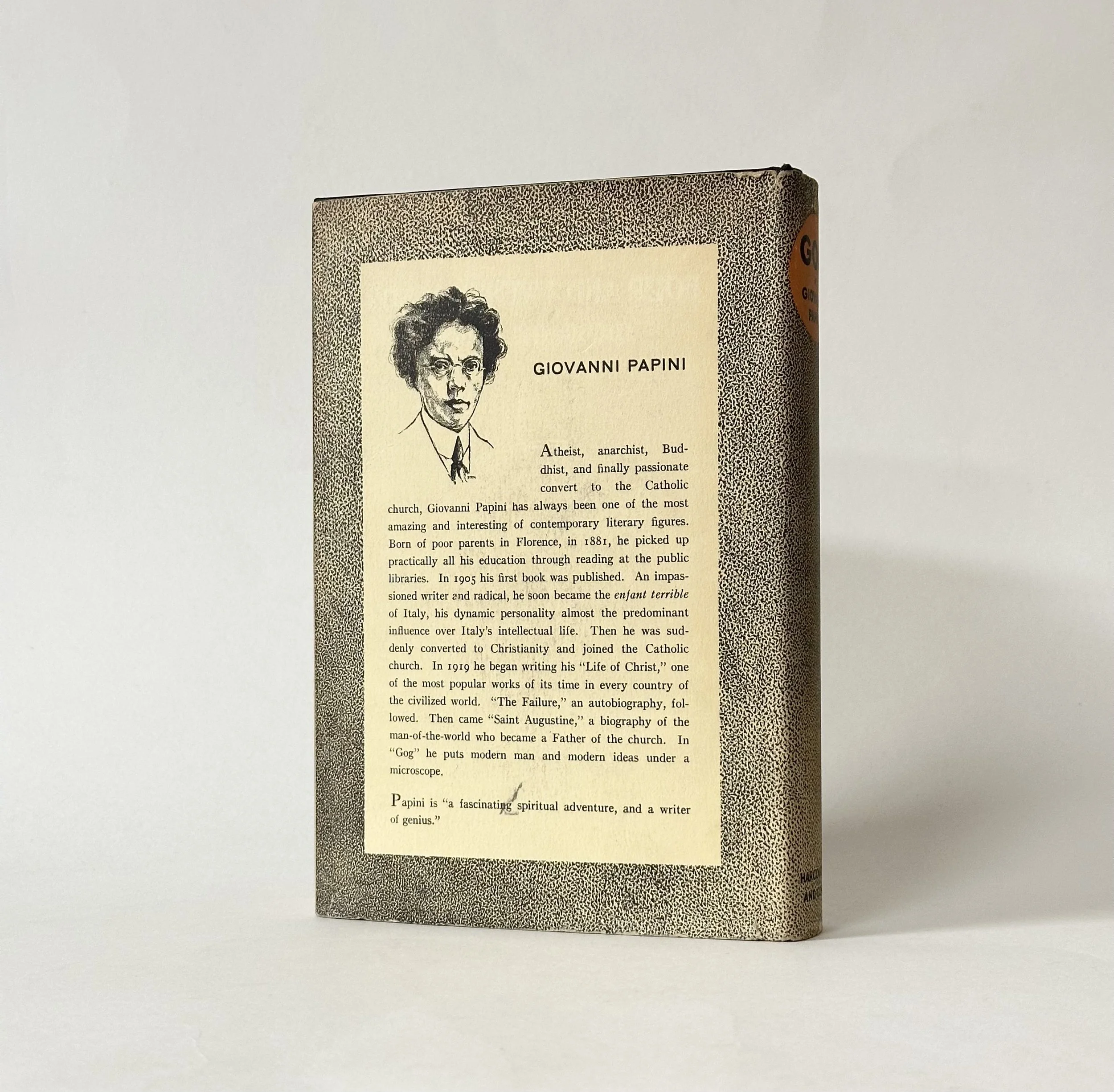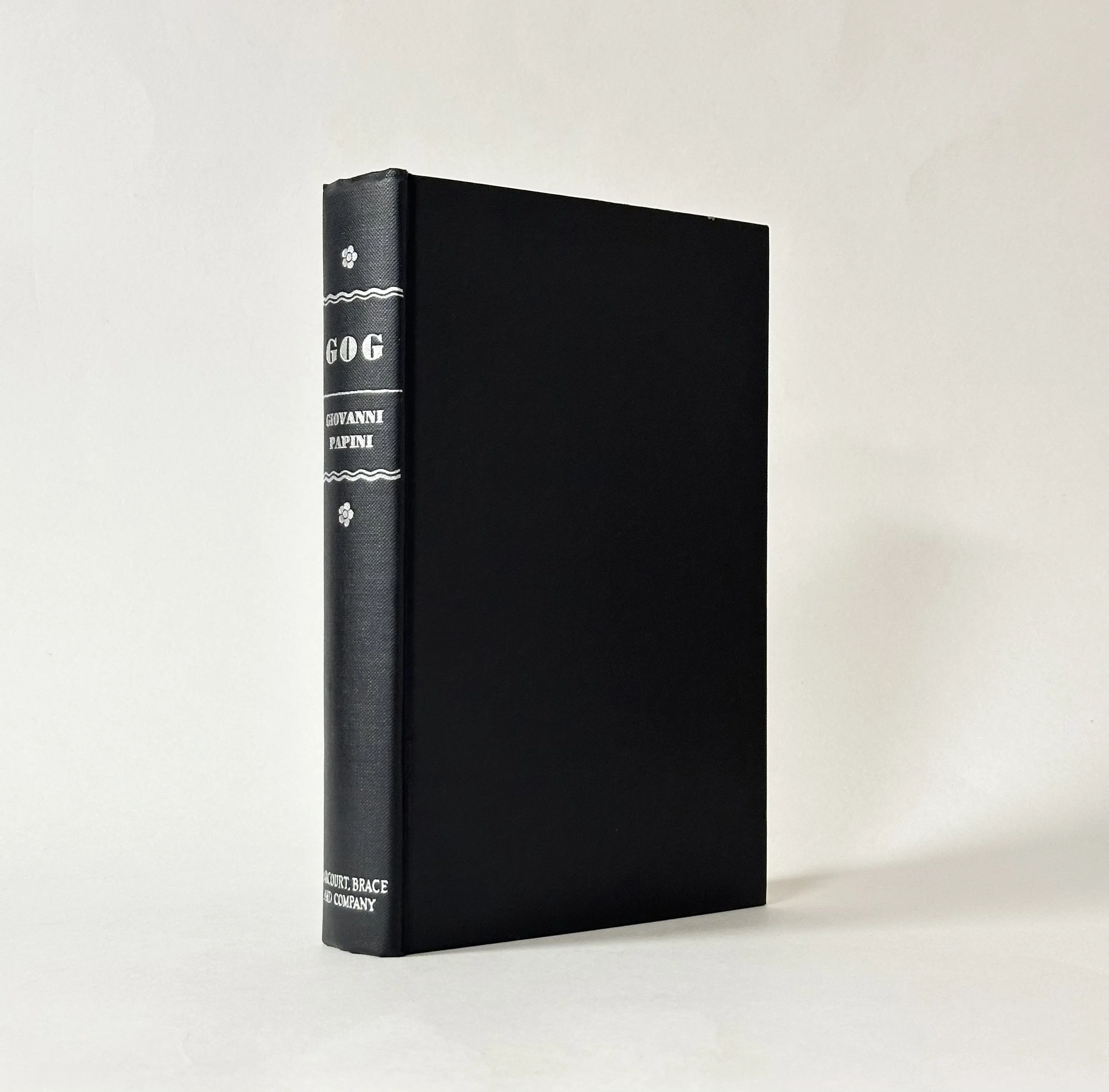 Image 1 of 3
Image 1 of 3

 Image 2 of 3
Image 2 of 3

 Image 3 of 3
Image 3 of 3




PAPINI, Giovanni. Gog
PAPINI, Giovanni. Gog. Trans. from the Italian by Mary Pritchard Agnetti. New York: Harcourt, Brace and Company. 1931. 8vo. First edition, first printing. Publisher’s striking black cloth lettered in silver gilt to the spine, in the alluring dust jacket which goes uncredited. A fine example, the cloth clean and bright, the binding tight and square, the contents clean throughout, two small bookseller labels to rear pastedown. The dust jacket not priced, complete, very gently bumped at extremities with two small adhesive tape repairs to verso, almost entirely obscured by the unusual jacket design, and mostly fine overall.
Though in print in Italian, German, Spanish, and French since original publication, this edition remains the only printing in English of this satire of modern humanity by the enfant terrible of Italy. Avant garde in design, structure and syntax, Papini’s novel follows the titular Gog, a multi-millionaire who, just after the First World War ends, decides to retire in order to experience every possible enjoyment of modern life. He audaciously and uncontrollably weaves towards more extreme experiences; drug cocktails, cannibalism, execution, notions of mass-murder via poison gas pre-Holocaust. He interviews heavyweights of the late nineteenth and early twentieth century—Gandhi, Freud, Einstein, Lenin, Edison—and ultimately finds them monotonous, without purpose, finding within himself instead a cynical, semi-savage, and incredible superhuman of the age. From this cataloguer’s own reading, nods of inspiration can be seen from Italo Calvino, Jorge Luis Borges, Gabriel García Marquez, Julian Barnes—there will be more. A fascinating, intentionally turbulent novel, derided by some as angry sophomoric skit, but inexplicably out of print in English. N.B. The futurist Papini did show allegiance to and heaped praise on fascism and Mussolini, which might well explain some of this later negligence. Scarce.
PAPINI, Giovanni. Gog. Trans. from the Italian by Mary Pritchard Agnetti. New York: Harcourt, Brace and Company. 1931. 8vo. First edition, first printing. Publisher’s striking black cloth lettered in silver gilt to the spine, in the alluring dust jacket which goes uncredited. A fine example, the cloth clean and bright, the binding tight and square, the contents clean throughout, two small bookseller labels to rear pastedown. The dust jacket not priced, complete, very gently bumped at extremities with two small adhesive tape repairs to verso, almost entirely obscured by the unusual jacket design, and mostly fine overall.
Though in print in Italian, German, Spanish, and French since original publication, this edition remains the only printing in English of this satire of modern humanity by the enfant terrible of Italy. Avant garde in design, structure and syntax, Papini’s novel follows the titular Gog, a multi-millionaire who, just after the First World War ends, decides to retire in order to experience every possible enjoyment of modern life. He audaciously and uncontrollably weaves towards more extreme experiences; drug cocktails, cannibalism, execution, notions of mass-murder via poison gas pre-Holocaust. He interviews heavyweights of the late nineteenth and early twentieth century—Gandhi, Freud, Einstein, Lenin, Edison—and ultimately finds them monotonous, without purpose, finding within himself instead a cynical, semi-savage, and incredible superhuman of the age. From this cataloguer’s own reading, nods of inspiration can be seen from Italo Calvino, Jorge Luis Borges, Gabriel García Marquez, Julian Barnes—there will be more. A fascinating, intentionally turbulent novel, derided by some as angry sophomoric skit, but inexplicably out of print in English. N.B. The futurist Papini did show allegiance to and heaped praise on fascism and Mussolini, which might well explain some of this later negligence. Scarce.
